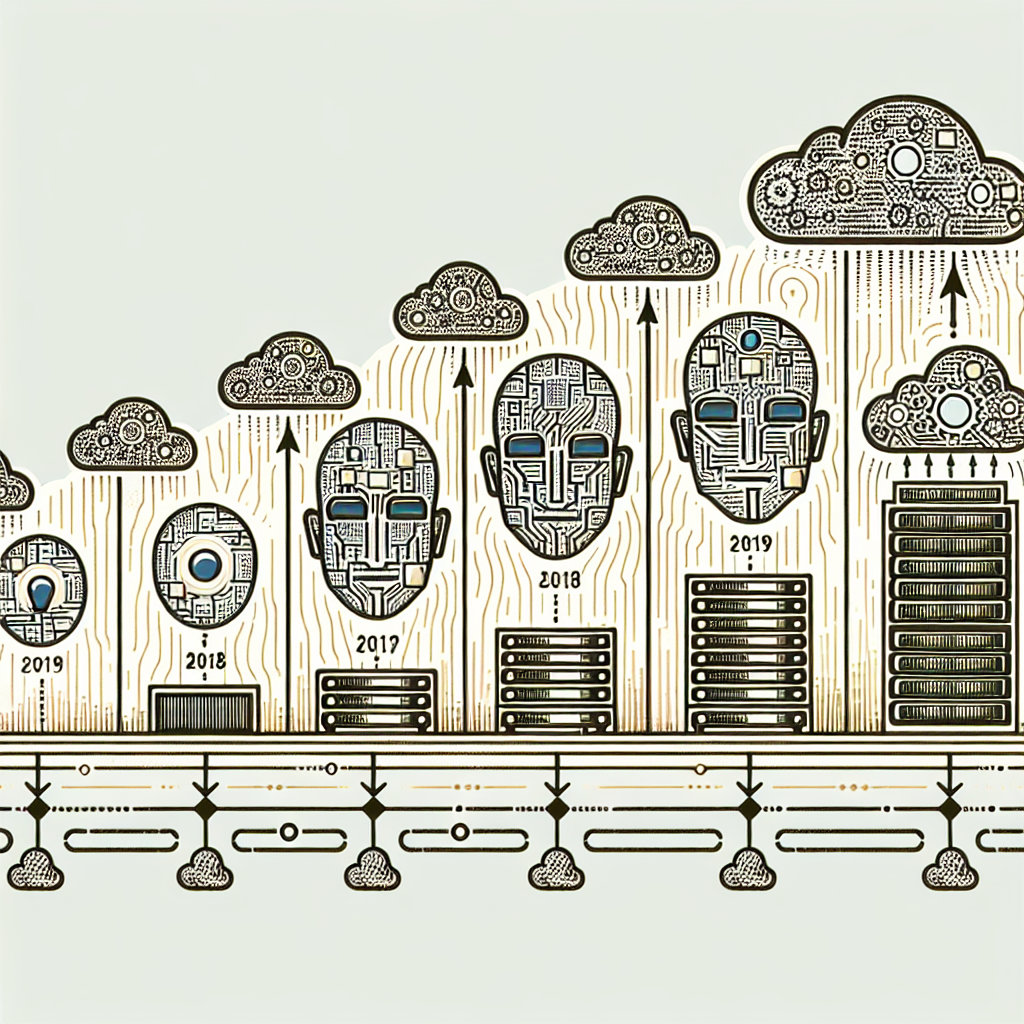The Evolution of AI Cloud Services: From Concept to Reality
Artificial Intelligence (AI) has been a buzzword in the tech industry for quite some time now. From self-driving cars to personalized recommendations on streaming services, AI is becoming increasingly integrated into our daily lives. One of the key enablers of AI is cloud computing, which provides the necessary infrastructure and resources for AI algorithms to run efficiently. In this article, we will explore the evolution of AI cloud services from concept to reality.
Conceptualization of AI Cloud Services
The concept of AI cloud services can be traced back to the early days of cloud computing. As companies started to leverage the cloud for storage and processing power, it became clear that AI could greatly benefit from this flexible and scalable infrastructure. By offloading the heavy computational tasks to the cloud, AI algorithms could run faster and more efficiently, leading to better performance and accuracy.
In the early 2010s, major tech companies like Google, Amazon, and Microsoft started offering AI cloud services to developers and businesses. These services included pre-trained models, APIs for natural language processing and image recognition, and tools for building custom AI solutions. By making AI accessible through the cloud, these companies democratized the technology and accelerated its adoption across various industries.
The Rise of Machine Learning as a Service (MLaaS)
One of the key components of AI cloud services is Machine Learning as a Service (MLaaS). MLaaS allows developers to build, train, and deploy machine learning models without having to worry about the underlying infrastructure. This abstraction layer makes it easier for developers to incorporate AI into their applications, leading to faster development cycles and reduced time to market.
With MLaaS, developers can choose from a variety of pre-built models and APIs that cover common use cases like sentiment analysis, object detection, and recommendation systems. These models are trained on vast amounts of data and can be easily integrated into existing applications through simple API calls. This level of abstraction makes AI more accessible to developers with varying levels of expertise, democratizing the technology and enabling innovation at scale.
The Emergence of AI Platform Services
As AI cloud services matured, companies began to offer more comprehensive AI platform services that catered to specific industries and use cases. These platforms provided end-to-end solutions for building, training, and deploying AI models, as well as tools for data labeling, model monitoring, and performance optimization. By bundling these services together, companies could streamline the AI development process and accelerate time to value.
AI platform services also introduced features like automated machine learning (AutoML) and model explainability, which further democratized AI by making it easier to build and interpret models. AutoML tools allow developers to train models without writing code, while explainability tools provide insights into how models make decisions, helping to build trust and transparency in AI systems. These advancements have made AI more accessible and actionable for businesses of all sizes.
The Integration of AI with Edge Computing
In recent years, there has been a growing trend towards integrating AI with edge computing, where data processing and analysis are done closer to the source of data. This approach reduces latency and bandwidth usage, making AI applications more responsive and efficient. By combining AI cloud services with edge computing, companies can leverage the best of both worlds and create powerful AI solutions that run in real-time.
Edge AI services enable use cases like predictive maintenance, autonomous vehicles, and smart cities, where real-time decision-making is critical. These services leverage AI models that are trained in the cloud and deployed at the edge, allowing for fast and accurate inference on local data. This hybrid approach is becoming increasingly popular in industries like manufacturing, healthcare, and transportation, where reliability and speed are paramount.
FAQs
Q: What are the benefits of using AI cloud services?
A: AI cloud services offer several benefits, including scalability, flexibility, cost-effectiveness, and access to pre-trained models and APIs. By leveraging the cloud, companies can quickly deploy AI solutions without having to invest in expensive hardware or infrastructure.
Q: How can companies get started with AI cloud services?
A: Companies can get started with AI cloud services by choosing a cloud provider that offers AI capabilities, such as Google Cloud, Amazon Web Services, or Microsoft Azure. These providers offer a range of tools and services for building, training, and deploying AI models, as well as resources for getting started with AI development.
Q: What are some common use cases for AI cloud services?
A: Common use cases for AI cloud services include image recognition, natural language processing, recommendation systems, predictive analytics, and anomaly detection. These use cases span across industries like healthcare, finance, retail, and manufacturing, where AI can drive innovation and improve business outcomes.
Q: How can companies ensure the security and privacy of their AI models in the cloud?
A: Companies can ensure the security and privacy of their AI models in the cloud by following best practices for data encryption, access control, and compliance. Cloud providers offer a range of security features and certifications to protect sensitive data and ensure regulatory compliance.
In conclusion, the evolution of AI cloud services has paved the way for a new era of innovation and transformation. By democratizing AI and making it more accessible to developers and businesses, companies can unlock new opportunities and drive value across industries. As AI continues to evolve and mature, we can expect to see even more advanced and impactful applications that leverage the power of the cloud and AI to create a better future.

